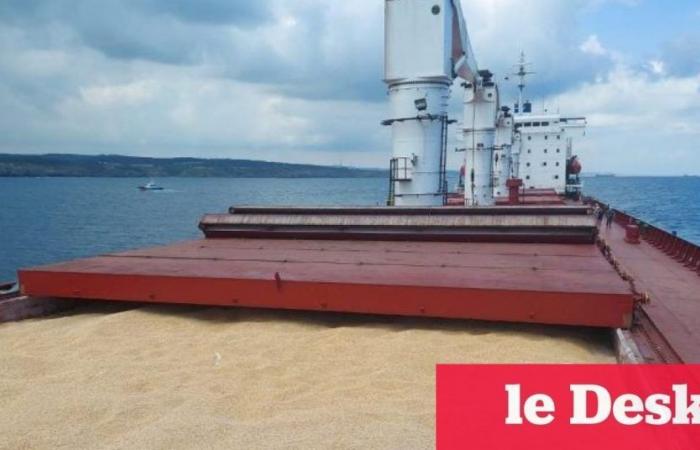A bulk carrier loaded with grain from Ukraine.
To compensate for the decline in national production, Morocco has renewed the cereal import refund program. For this campaign, however, the kingdom will not be able to count on its historic supplier: France, the country’s leading exporter of soft wheat, whose harvest has in turn been weakened by unfavorable weather conditions.
France had in fact announced a 26% drop in its total exports of this commodity for the 2024-2025 campaign, thus reducing the volumes shipped to Morocco from 2.8 to 1.5 million tonnes. At a time when the Kingdom needs to import 5 to 5.5 million tonnes of soft wheat, Moroccan importers are turning to new markets, led by Russia, the world’s leading exporter of cereals.
According to Omar Yacoubi, president of the National Federation of Cereal and Legume Traders (FNCL), a “ important » import program from Russia is launched. “ Our first supplier had a disappointing harvest, and so we are forced to look for wheat elsewhere. We happen to have very good trade relations with Russia. “. Russian wheat indeed represents, underlines our interlocutor, the best quality-price ratio for Moroccan importers: “ the Russians have very good quality and offer the most competitive price on the market », he adds.
Thus, during the current campaign, Russia will dethrone France and supply the Kingdom, for the second consecutive year, providing Morocco with the largest share of its wheat needs. Already last August, Moroccan imports from this country had reached 1.92 million quintals of soft wheat, thus surpassing the quantities supplied on the French market, which only supplied 0.33 million quintals.
Asked if Russia is becoming the favorite destination for Moroccan importers, Yacoubi underlines that this reorientation of imports “ is purely cyclical “. The president of the FNCL adds in this sense: “ We must not forget that France is a supplier on which we have relied for many years. This year it will be more likely Russia, but this is not an underlying trend ».
The choice of exporting countries, he argues, remains determined by the evolution of the offer on the national market. “ At each harvest we redraw a map of the exporting countries and the importing countries of cereals according to the harvests in each region », says the president of the FNCL. It is with this in mind, recalls Yacoubi, that Morocco is continuing to diversify its sources of cereal supply. Thus, alongside Russia, several markets are also targeted by Moroccan traders, including Romania, Bulgaria, Ukraine, Germany, Poland and the Baltic countries.
For this campaign, Moroccan importers, although encouraged by the decline in world wheat prices, are hoping for a further drop in prices. “ Prices have eased, but still remain slightly above the target price set by the Moroccan government at 270 dirhams per quintal. Another drop would allow us to go below this bar », notes our interlocutor. The evolution of prices will depend on the cereal harvests in the southern hemisphere which takes place from the beginning of December.
©️ Copyright Pulse Media. All rights reserved.
Reproduction and distribution prohibited (photocopies, intranet, web, messaging, newsletters, monitoring tools) without written authorization.






